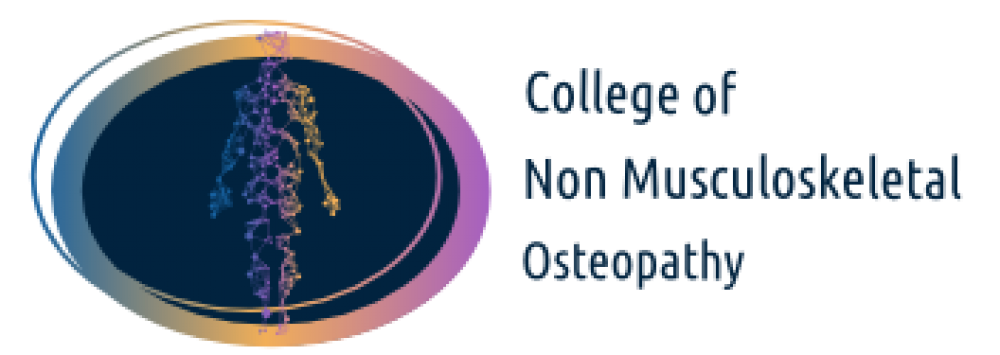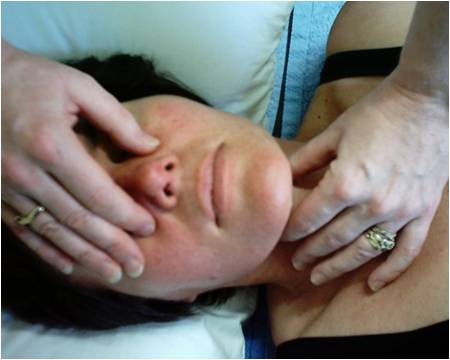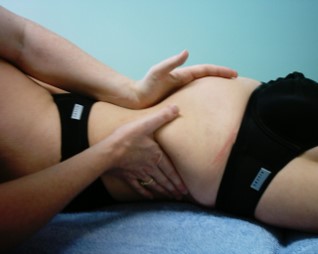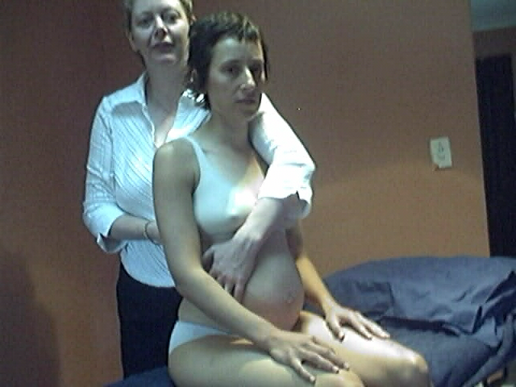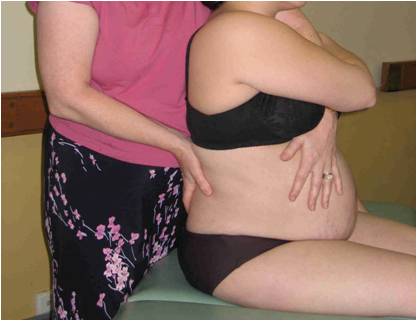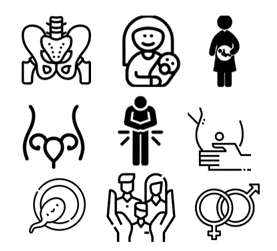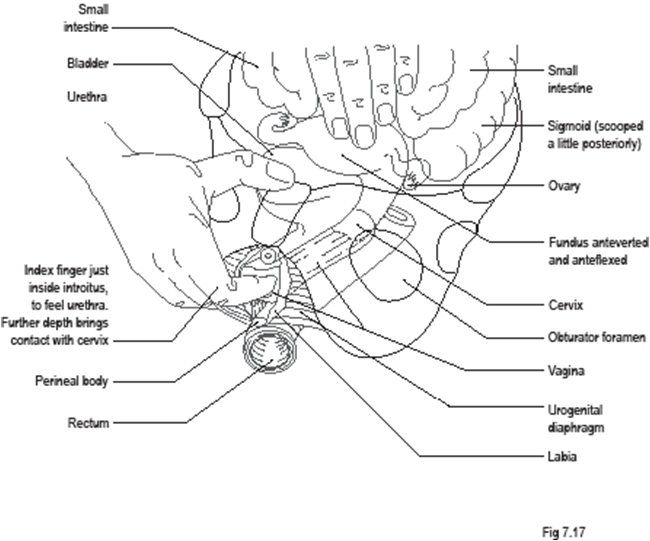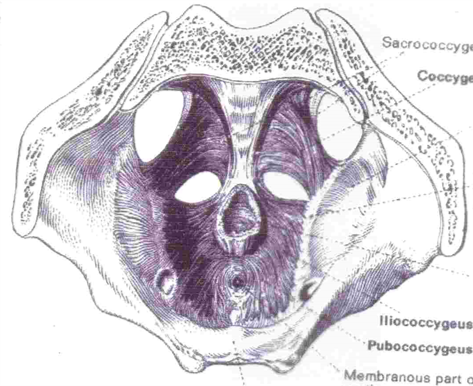Women's Health Diploma - by face to face blocks AND clinics in BRISTOL

The F2F programme consists of all your lectures (that the other hybrid course does online) are doing in person. You also do lots of techniques during each F2F block, and you still then have 3 days of focused clinical experience in year one, and 5 in year two, on top!
So, for year one, the certificate year, you have 1 3-day lecture block, and 3 3-day lecture blocks in Bristol
For year two, the format is similar - 1, 3-day block, and 3 4-day blocks of lectures / techniques in Bristol, then one 4-day clinic block Bristol.
After completing the second year you can gain the Diploma.
After either the certificate or the Diploma you can join whombs.com, which is a practitioners support group and a public information website / service (which is being built up gradually), to support you and the public to know more about osteopathy and women's health, and care of infants and children.
Whombs is open only to registered osteopaths (in your country of practice).

Contact Caroline with any queries / to enrol: admin @ cnmo .co .uk
WOMENS HEALTH CERTIFICATE (year one of the Diploma):
BLOCK ONE:
THURS-SAT – 17-18-19 OCTOBER 2024, IN PERSON LECTURES
SUN 20 OCTOBER, CLINICAL INTRODUCTION DAY
BLOCK TWO:
THURS-SAT 16-17-18 JANUARY 2025, IN PERSON LECTURE DAYS
SUN 19 JANUARY, CLINICAL DAY
BLOCK THREE:
THURS-FRIDAY 27-28 FEB AND 1 MARCH, IN PERSON LECTURE DAYS
NO CLINICAL DAY
BLOCK FOUR:
THURS-SAT 12-13-14, IN PERSON LECTURE DAYS
SUN 15 JUNE, CLINICAL DAY
WOMEN’S HEALTH (YEAR TWO) DIPLOMA DATES:
BLOCK ONE:
THURS-SAT 24-25-26 NOVEMBER 2024, IN PERSON LECTURES DAYS
SUN 27 , CLINICAL DAY
BLOCK TWO:
THURS-SAT 27-28 FEB 2025 AND 1 MARCH, IN PERSON LECTURE DAYS
SUN 2 MARCH, CLINICAL DAY
BLOCK THREE:
THURS-SAT, 6-7-8 JUNE, IN PERSON LECTURE DAYS
SUN 9 JUNE, CLINICAL DAY
BLOCK FOUR:
MON-WED 30 JUNE, AND 1-2 JULY, IN PERSON LECTURE DAYS
THURS-SU 3-4-5-6 JULY, CLINICAL DAYS
CALENDAR OF BLOCKS - CHECK OUT THE MAIN TIMETABLE FOR ALL COURSES AND PROGRAMMES
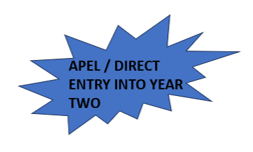
APEL - this is only possible with prior training / experience (please discuss with us your suitability).
To ensure knowledge alignment in year two, there is a requirement to do some online with this F2F version - this acts as an extra resource to the 4 3-day blocks of in person theory that summarises all the online material and gives you all the hands on to go with in, in preparation for the advanced clinical block. It also acts as your ongoing learning guide and consenting orientation module.
COURSE FEES:
Year One:
12 days of in person lectures, with emodule support, and 3 clinical observation / participation days.
£2500.
Year one: PLEASE GET IN TOUCH ASAP TO REGISTER YOUR INTEREST / HOLD YOUR PLACE - early bird payment instalments - £2250 in total if paid in full by 1 July).
Year one: £2500
Year Two:
14 days of in person lectures, with emodule support, plus 5 clinical observation / participation days.
£3000. IT IS POSSIBLE TO APEL INTO YEAR TWO IF YOU HAVE ALREADY DONE EG THE MOLINARI INSTITUTE DIPLOMA. If you have done the Mummy MOT but no other womens health training we do advise you to go into year one (but please speak to us if you have other trainings that might enable us to put you into year two)
Year two: PLEASE GET IN TOUCH ASAP TO REGISTER YOUR INTEREST / HOLD YOUR PLACE - early bird payment instalments - £2700 in total if paid in full by 1 July).
Year two: £3000
Please note
Refunds are not possible, course places are held over for a subsequent year if you cannot attend.
*Your online material (all the lectures, recorded anyway, plus additional resources) is available to access on enrolment, you do not have to wait for the block dates to access.
WATCH FREE CPD VIDEO ON WH OSTEOPATHY AT BOTTOM OF PAGE!
YEAR ONE / CERTIFICATE SUMMARY:
- ANATOMY AND PHYSIOLOGY
- AUTONOMICS, VISCERAL PAIN
- MICROBIOME AND IMMUNE CONSIDERATIONS IN WOMENS HEALTH
- UROGYNAECOLOGY AND PELVIC FLOOR
- DEVELOPMENT, HORMONES, BODY IMAGE, GROWTH
- ENDOCRINE DYNAMICS, FERTILITY AND OBSTETRICS
- BIRTH, BONDING, BREASTFEEDING
- POST PARTUM RECOVERY
- LIFESPAN ISSUES
- MENOPAUSE
- CHANGING UROGENTIAL AND MUSCULOSKELETAL FACTORS
- ONLINE PLATFORM AND TUTORIAL SUPPORT
- PRACTICAL INTENSIVES AND CLINICAL OBSERVATIONS DAYS.
YEAR TWO / DIPLOMA SUMMARY:
- CLINCAL ASSESSMENT REVIEW = CONSIDERING ALL THE FACTORS WITHIN THE CERTIFICATE CURRICULUM AND TAKING THEM TO THE NEXT LEVEL:
- COMPLEX CLINICAL PRESENTATIONS REVIEWED. STRONG FOCUS ON EVIDENCE AND RATIONAL APPORACHES TO PRACTICE.
- INTERNALS AND SENSITIVE AREAS WORK, CONSENTING, RISK MANAGEMENT AND ASSOCIATED ETHICAL AND CLINICAL CONSIDERATIONS.
- MANAGEMENT OF VARIOUS CONDITIONS EG fertility, endo, prolapse, diastasis, complex pregnancy, post partum, bladder disorders / cystitis, post surgical issues, cancer considerations, pelvic pain, breast care
- Working with the traumatised patients, and those with complex needs.
- CLINICAL PROTOCOLS = WHAT THEY ARE AND ARE NOT
- OUTCOMES ASSESSMENT - understanding how to monitor your clinic and when / to who to refer.
- UNDERSTANDING ORTHODOX MANAGEMENT AND INTERDISCIPLINARY ISSUES
- PRACTICAL TECHNIQUE INTENSIVE CLASSES AND CLINICAL OBSERVATION DAYS.
- ONLINE PLATFORM AND TUTORIAL SUPPORT
- EXTENSIVE EVIDENCE REVIEW AND CASE ANALYSIS
- HELPING YOU WORKSHOP COMPLEX PRESENSTATIONS
- DEVELOPING YOUR PERSONAL CLINCAL PROFESSIONAL FIELD OF CARE
| WOMENS HEALTH QUALIFICATIONS | ||
| CERTIFICATE | DIPLOMA | |
| Supplementary Module | Introduction to osteopathic and somatophysiological principles Learning how to learn – revision of concepts | Introduction to roles and boundaries in clinical practice Care plans, management, clinical audit, and outcomes measures Constructing an evidence-informed approach |
| MODULE ONE | Development of the body cavities and genitals Anatomical changes from children to adults Neuro-endocrine-immune system | Bladder and bowel function in girls Gender and identity issues Complex dynamics in puberty Hormonal balance across the lifespan |
| MODULE TWO | Development of immunity The role of the microbiome Function, physiology and somatovisceral integration The basics of visceral pain and visceral reflexes | Adolescent mental health Interoception, body image and sense of self Complexities of endocrine imbalance and dysbiosis on visceral pain Complex visceral pain and dysautonomia |
| MODULE THREE | Being female Gender bias in research Social dynamics, relational safety Basics of fertility, conception and gynaecological function | Trauma dynamics Fear, freeze, visceral pain Effects on physiology, function and fertility, subfertility and assisted conception Complex gynae, endometriosis, adhesions |
| EXAM / ASSESSMENT ONE | ||
| MODULE FOUR | Pregnancy and general obstetric dynamics Optimal foetal positioning | Considering pregnancy complications, accompanying disorders, complex pain and biomechanical considerations, |
| MODULE FIVE | Biomechanics in pregnancy Orthopaedic and tissue changes and strains Third trimester | Foetal position, high risk pregnancies, complex therapeutic alliance and interprofessional considerations pelvic instability and diastasis rehab |
| MODULE SIX | Preparation for labour and delivery Birth trauma | Complex birth trauma and injury Pregnancy loss Premature delivery |
| EXAM / ASSESSMENT TWO | ||
| MODULE SEVEN | Maternal mental health The fourth trimester Breastfeeding and initial recovery Body cavity and postural recovery | Postpartum depression Complex maternal infant considerations Breast care, mastitis, physiology of challenging maternal recovery Complex body image and structural instability problems |
| MODULE EIGHT | Ongoing urogenital health and pelvic support Menopause Breast care, | Complex urogenital dysfunctions Post surgical and other operative dynamics Menopause dynamics, post breast cancer care and reconstruction dynamics. |
| MODULE NINE | Gerontology and Global recap of course | Cancer and complex pathology across the lifespan The role of osteopaths and allied healthcare manual therapy professionals in Women’s Health |
| EXAM / ASSESSMENT THREE |
Please enquire for other course option payments, and you can also pay by bank transfer.
